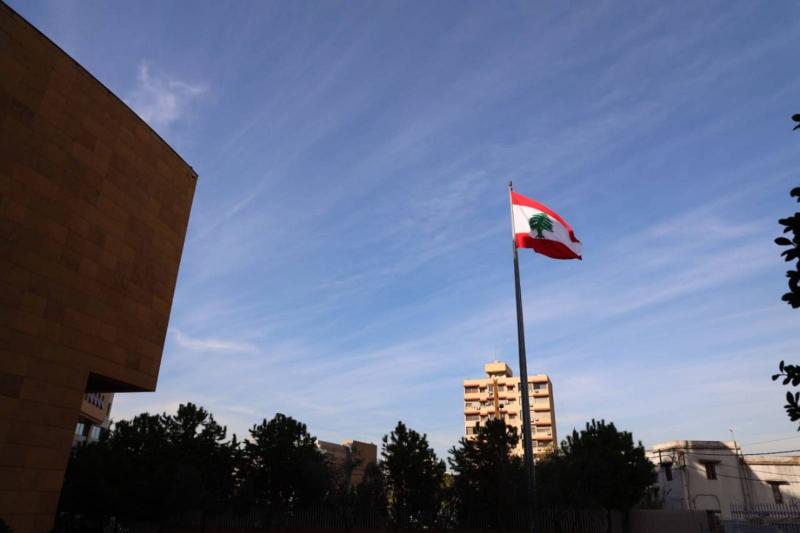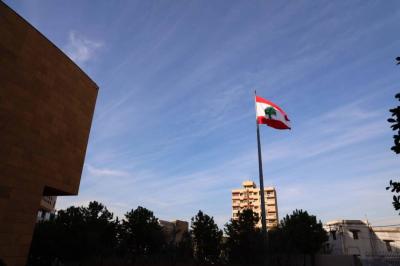Lebanese citizens have closed the chapter on the year 2023 and opened the page on the new year, which will be weighed down by the legacies of its predecessor with political, economic, military, and security challenges, warning that the new year may not be easy, and may indeed be harder than the previous years, from a realistic rather than a pessimistic perspective. The past year ended without the election of a president or any advancement in this regard. Internal and external attempts to gather parties at a dialogue table to bridge diverging viewpoints have failed, but attention will turn in the new year to renewed efforts to hold dialogue tables or find solutions, as stated by "Electronic Anbaa."
In this context, there have been indications of the intention of Speaker of the House Nabih Berri to call for dialogue again and to mobilize the presidential file; however, this requires a new approach, as known methods have been tried and did not achieve their goals. These new attempts may coincide with efforts made by those who believe in the idea of dialogue, such as President Walid Jumblatt.
On the internal front, Lebanese citizens are also waiting for the active countries to re-engage with Lebanon, such as France, Qatar, and Saudi Arabia, and envoys may return to Lebanon, including French envoy Jean-Yves Le Drian or the Qatari envoy. However, international attention is currently focused on the Gaza war.
Regarding the Gaza war and the escalating southern front, Israel continues its aggression, and "Hezbollah" continues its response, with no end to the war expected in the near future. Lebanese eyes will be directed toward external efforts, particularly American efforts, to stop the war and achieve a small settlement for Lebanon. In this context, there is talk of a visit by Senior White House Advisor Amos Hochstein to Lebanon to propose a ceasefire and the implementation of UN resolution 1701, which has entered a critical stage. There are suggestions regarding Israel's commitment to a ceasefire in exchange for Hezbollah's withdrawal from the southern borders, but the party publicly rejects these ideas.
These discussions align with the statements of Israeli government officials, led by Prime Minister Benjamin Netanyahu and Defense Minister Yoav Galant, who have issued warnings to "Hezbollah" regarding the "necessity of distancing itself from the borders and responding to diplomatic efforts, otherwise Israel will compel the party to do so." It is important to note that tensions are escalating between "Hezbollah" and Israel, as well as between the latter and Iran. In Lebanon, Israel has intensified its strikes targeting homes that are either sheltering party fighters or homes of civilians in the south, while in Syria, Israel has also intensified its strikes against the Revolutionary Guard, killing its leaders.
The requirements for the upcoming year do not stop at the presidential election and the war in the south; there are many other points that will impose themselves, the closest of which may be the appointment of a new Chief of Staff following the extension of Army Commander Joseph Aoun, to maintain the army's status and role amidst current challenges. The issue of the Chief of Staff has not yet been resolved, and the Progressive Socialist Party is working diligently on this file to preserve the military institution, alongside other political parties, but the opposition from the "Free Patriotic Movement" remains unchanged, beginning with the rejection of appointments and cabinet meetings amid the presidential vacancy.
Municipal elections will also be a awaited requirement, as municipalities need new blood, especially since many have been stagnant, but an expected postponement may occur due to the lack of funding and the ability to conduct elections under the current conditions of presidential vacancy and war.
Economic challenges will also be present in 2024, as the dollar's stable price in recent months may face fluctuations due to the unsound economic and financial structure in Lebanon in the absence of reforms, and investments have not returned with momentum to the country. Expected points of engagement with the International Monetary Fund should occur.
In this same context, state administrations are partially or fully closed due to employee strikes, and there are transactions that have been left pending for over a year that have not been completed due to the closure of institutions such as the Traffic Department or real estate offices. This file will be the biggest challenge facing the government and needs to be resolved to secure income for the treasury and fulfill citizens' transactions.
Much can be said about the outstanding requirements before the parliament and the ministers, and despite the delicate circumstances in the region, those concerned must begin to meet them because new requirements will impose themselves in the coming days and months. Despite the bleak and bloody scene, one can only cling to hope for a better tomorrow for Lebanon and the region.




